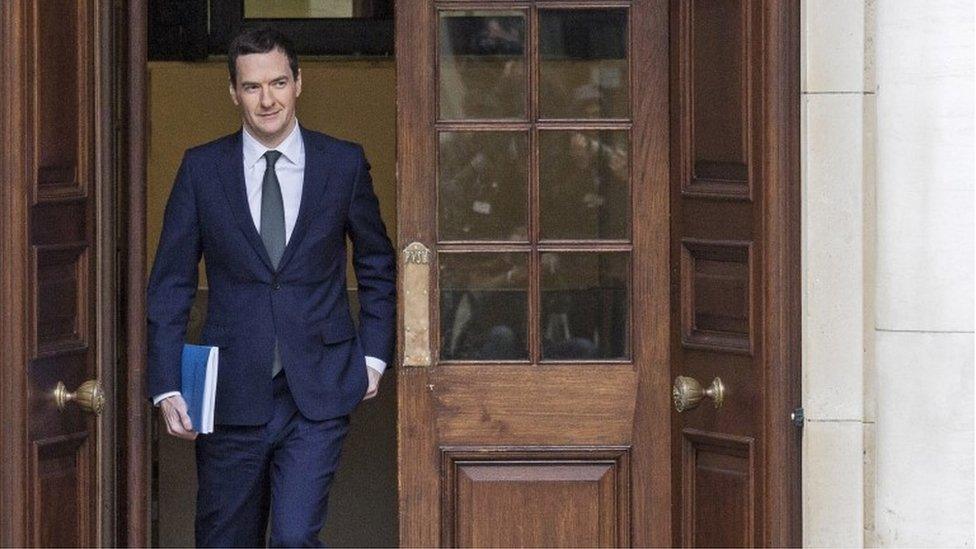Chancellor offers more for 'devo max' plus super hospital
- Published
- comments

Chancellor George Osborne used his Autumn Statement and Spending Review to detail £20bn in budget cuts
Chancellors love springing surprises, especially if they manage to shoot some of the opposition's foxes at the same time.
George Osborne will consider that he has scored not one but two direct hits - no cuts to working tax credits and no cuts to police budgets.
The former, of course, is largely due to the defiance of the House of Lords (Mr Osborne was ridiculed by Labour's Shadow Chancellor John McDonnell, describing it as a climb-down).
The latter may or may not be connected with that leaked letter from an unnamed police chief to the Home Office warning about the dire consequences of cuts in police budgets of 20% just at a time when community policing and intelligence-gathering were at a premium because of the counter terrorism agenda.
The chancellor was equally determined to present himself as George (if not Bob) the Builder with his £4bn push for private developers to deliver 400,000 new affordable homes to buy.
There will be some scepticism about this, and not just on the Opposition benches.
Stark backdrop
Could this be yet another missed target bearing in mind that, as Mr McDonnell pointed out, the construction industry is in recession?
In the Midlands, building developments are severely hampered by a shortage of bricklayers.
One major local initiative which will receive a general welcome from all sides in politics will be Mr Osborne's confirmation that the long-awaited 670-bed super hospital in Sandwell is on the list of three new hospitals.
It will take over services currently provided by Birmingham City and Sandwell hospitals.
A "flat cash" settlement for local authorities guarantees that the agony for local councils will extend throughout the lifetime of this parliament. This will be the stark backdrop for councils preparing to set their budgets for next year.
Labour MPs including Gisela Stuart (Birmingham Edgbaston) complain that local government is being redefined, forced by budget cuts to withdraw from important areas of their work, with only the voluntary "third sector" left to fill the gap, or so it's hoped.
'Devolution Revolution'
Will this be offset by his further encouragement for the local leaders who signed up in Coventry last week for the West Midlands Combined Authority's "devo deal"?
The chair of the shadow authority which paves the way for it, the Conservative leader of Solihull Council, Bob Sleigh, told the BBC he is delighted the £8bn of devolved spending power already announced will enable the new authority, complete with elected "metro" mayor, to deliver the "big ticket" items - transport, housing, skills and business growth.
It will certainly concentrate the minds of councils outside the "core" authority area who have so far stood aloof from the West Midlands Combined Authority. Places like Warwickshire, where nearby Coventry and the Coventry and Warwickshire enterprise partnership have signed up for it while the county council has not.
The government clearly believes its "Devolution Revolution" is finally gaining momentum towards its vision of the new authority at the centre of a bigger Midlands "economic engine", connecting the East and West Midlands in the way that the Northern Powerhouse is connected from Merseyside to Humberside.
The Treasury's official map of its regional spending settlements shows East and West Midlands united, together, joined-up, in a single region.